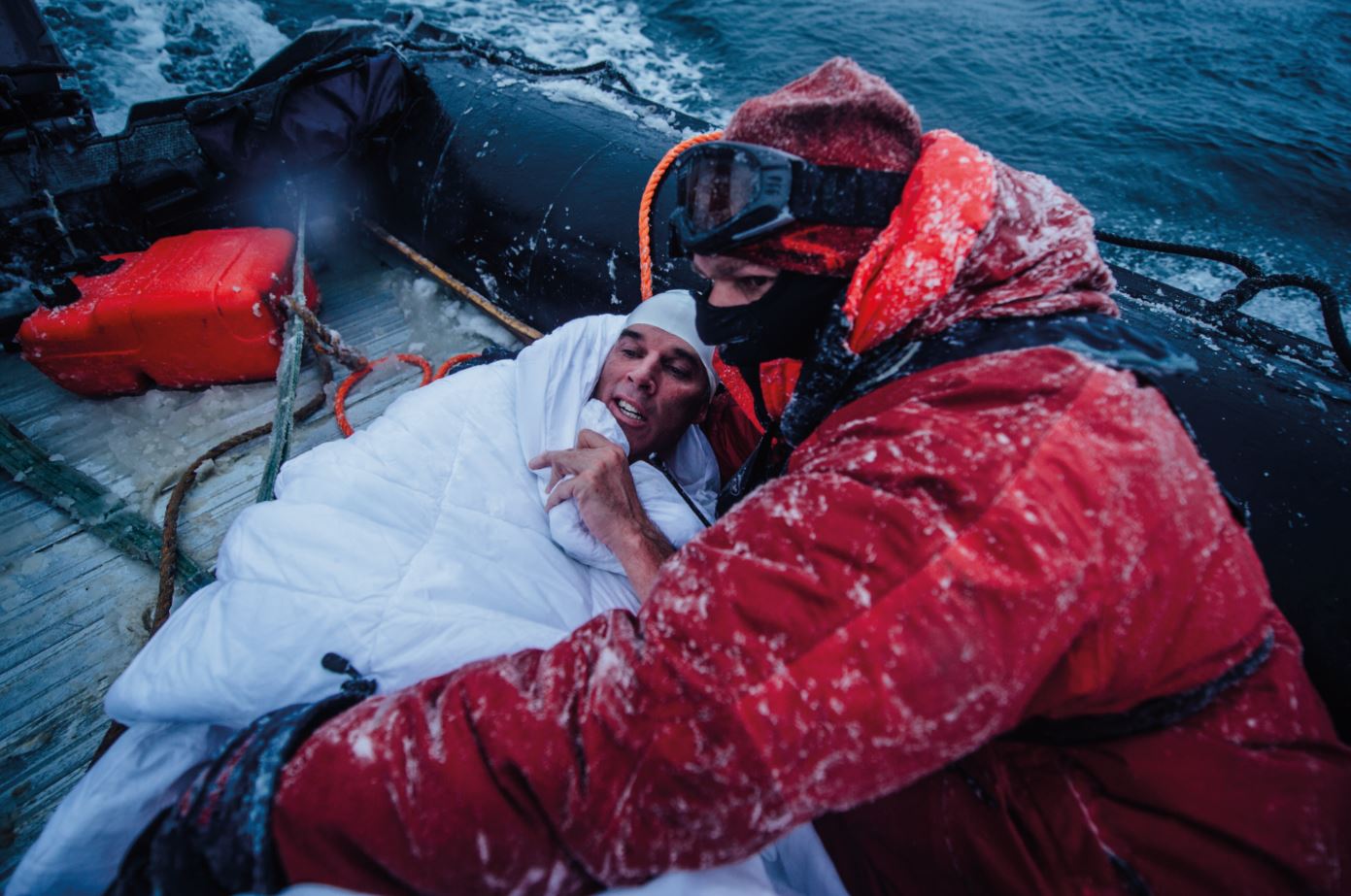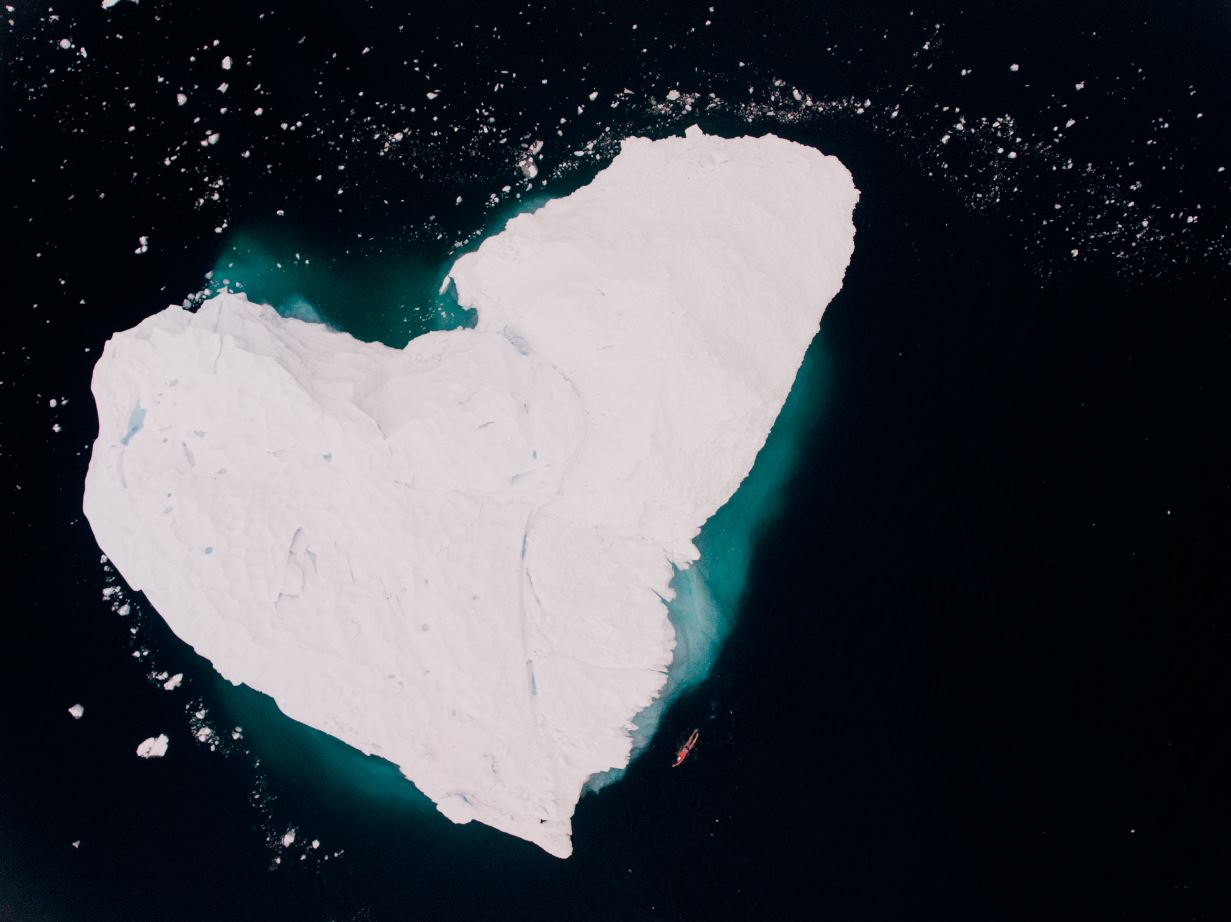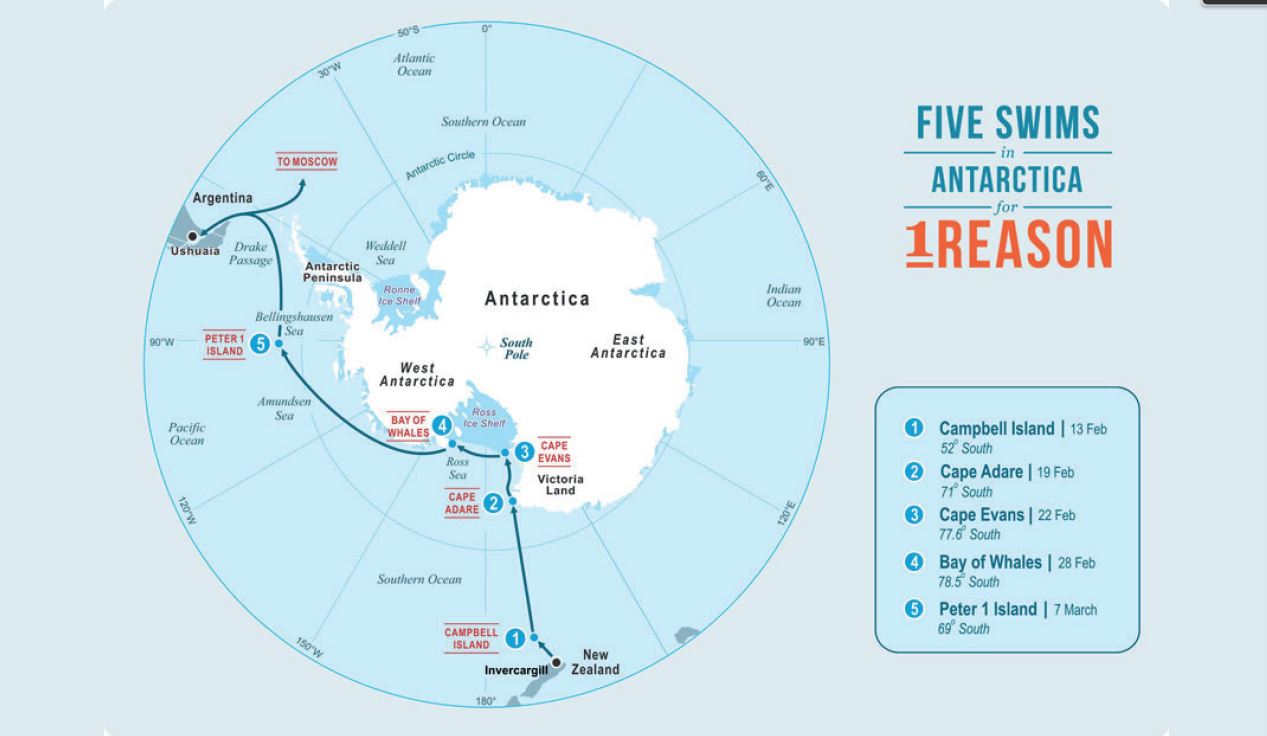Lewis Pugh: A 10-year race for the environment

For 10 years, Lewis Pugh had encountered freezing waters. As an endurance swimmer, he is an advocate for polar regions and oceans. Forcefully, he urges us to reflect on climate developments and the deterioration of marine ecosystems. Above all, his energy encourages reflection and pushes us to act. Encounter with the United Nations Patron of the Oceans, a key witness coming out of the cold.
INTERVIEW
Sustainability MAG : You have taken on many challenges by swimming in the world's oceans and the seven seas. In 2007, you particularly risked your life during a 1 km swim across the North Pole. What message did you hope it would convey?
Lewis Pugh : It was a very simple message; it is now possible for somebody to swim across the North Pole because of climate change. You shouldn’t be able to swim across there, it has been frozen over for thousands and thousands of years. For the first time in 2007 was the first time that we began to start seeing big open patches of sea. The message was to graphically show world leaders how quickly the Arctic was changing.
Your swims raise awareness about the vulnerability of our ecosystems. Beyond that, we understand that you go to the extremes to highlight your own vulnerability… Why did you pursue such a dangerous swim?
Indeed, these swims are very dangerous. I put my life on the line. People really want to know why somebody would be prepared to risk everything. For me, it is about justice. Two types of justice. Number one, justice between us and the animal kingdom, and number two between us and future generations. I think there is something very very wrong about us destroying the world of the polar bear, of the artic fox, of the walrus, of these magnificent animals that have lived undisturbed in the Arctic for thousands and thousands of years. What gives us the right to destroy their world? Also, we have to leave the world in the conditions where our children and grandchildren can live and that requires us to change the way we are consuming and living our lives at the moment. The swim across the North Pole was a fight for justice.

Looking back over our 10 years, we’re seeing how much and how quickly we have changed during this period – what are the most important environmental changes you have observed over this timeframe and how quickly have these occurred?
There is an island in Arctic called Spitsbergen, halfway between Norway and the North Pole. In 2005, I went to do a lot of swimming trainings there and the average water temperature was 3 degrees Celsius. I was there in June this year, so 12 years later, and the water temperature was 10 degrees. When water goes from 3 to 10 in just 12 years, we are seeing a complete change in the ocean. If you take ice and you put it into 10 degree water, you don’t have to be a scientist to realize it will melt. The glaciers in the island of Spitsbergen are now melting away, and so is the sea ice. This is having a huge impact on the environment. What we will experience is that parts of the world will just become too hot to live in, becoming inhabitable. Places like in India, Pakistan, for example. Other parts of the world will experience extreme floods, extreme droughts and obviously because glaciers are melting, others will face sea level rise, like in London or Florida. Countries like the Maldives or Bangladesh will be increasingly vulnerable to flooding. The other clear consequence will be the migration of people, moving from very hot places to cooler places. I fear that we will also experience xenophobia and conflicts. These changes that have occurred in a short period of time will have a significant impact on the world.
You once said: “The moments that challenge us the most define us”. This sentence is particularly inspiring…
I remember arriving at the North Pole and no human had never swam in a water at minus 1.7 and that will freeze at minus 1.8. Because of climate change, there is now open sea at the North Pole and the water there is completely black. It looks like a giant ink pot with pieces of ice floating around. I remember walking out and getting into my swimming costume and about to dive in. And I had this most stressful thought; if things don’t go according to plan, how long will it take for my frozen body to sink to the bottom of the ocean? Which is the worst thought to have when you want to be the first ever to swim across the North Pole. But, it is a very natural feeling because it is so dangerous and I had to dig deep down and use everything inside me to be able to get into this water. Everything. That’s what I mean by this sentence. Because I could have instead not dived in but I decided, no, this is so important. And that is my message to all.
We know what impact climate change and consumption are having on our environment and on our children’s future. It is going to require us to dig extremely deep to be able to solve these problems. But we do have it within us. It requires us to challenge ourselves, deeply.

What has inspired and disappointed you the most regarding global efforts against climate change?
I was very excited in Paris when 195 countries agreed to come together. It is an incredible achievement. I am disappointed now that the United States have decided to withdraw. America is responsible for 16% of the world carbon emissions. I think it is the wrong decision for the world and it is certainly the wrong decision for the American people. We only need to look at what happened now with the recent hurricanes to realize how vulnerable the American people are going to be to climate change.
Looking forward, what kind of world do you see in 10 years time and what do you feel will be the most important thing to keep in mind over this period?
At the moment, I am trying to create big marine protected areas down in Antarctica. Last year, we helped create the biggest marine protected area in the world, in a place called the Ross Sea. This area is 1.5 million square kilometers. It is the size of Britain, France, Germany and Italy all put together. It is just amazing. It is now protecting the most pristine ecosystem around Antarctica. Over the next couples of years, I am going to try and create another six of these around Antarctica. Together, we hope they will be the size of Australia. It is the largest conservation plan in history. That’s what I am finding very exciting at the moment.
If I look forward 10 years, the possibilities that we can protect the most wonderful and biodiverse part of Antarctica is very exciting. This is the world of the emperor penguin and the leopard seal and the humpback whale. This is an amazing place and we have to have to protect it. Not just for our children but also for scientists, what they can learn down in Antarctica is invaluable. So that’s my dream in ten years time

Completes first swim across the North Pole to highlight the impact of melting sea ice. The 1km swim, in water measuring minus 1.7°C, takes 18 minutes and 50 seconds.
Completes first swim on Mount Everest, in a glacial lake, to highlight the melting of the glaciers in the Himalayas. The 1km swim, at an altitude of 5,200m, takes 22 minutes and 51 seconds. Lewis Pugh is appointed a Young Global Leader by the World Economic Forum.
Lewis Pugh is appointed “Patron of the Oceans” by the United Nations Environment Programme.
Completes seven consecutive swims in the ancient Seven Seas of the world (Mediterranean, Adriatic, Aegean, Black, Red, Arabian and North) to urge surrounding nations to create more Marine Protected Areas.
Undertakes a series of swims off Antarctica to campaign for a Marine Protected Area in the Ross Sea.
Completes the most southern swim in the world in the Bay of Whales, Antarctica. The 330m swim, in water measuring minus 1°C and at minus 37°C air temperature, takes 5 minutes to complete.